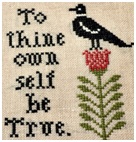|
 |
|
 |
|
|
||
Jean-Jacques Rousseau - Philosophy, Government and Success
Jean-Jacques Rousseau (1712-78)
Swiss philosopher (pictured right), who had a big influence on the French and American Revolutions.
His most famous books are... The Social Contract (1762). Émile (1762).
What did he say about government and success?
1. Freedom People should:
The trouble is that society fills people with desires that take away their freedom. This is what he meant by his famous opening line of his book, The Social Contract : “Man is born free, and everywhere he is in chains”.
2. Equal rights Everyone has the same rights, particularly freedom (see point 1). So Rousseau believed in “liberty, equality, fraternity” (liberté, equalité, fraternité), which became the slogan of the French Revolution. Fraternity (or brotherhood) comes from people working together for the good of the state (see point 3).
3. The social contract This is an agreement between everyone in a country that they will unite and co-operate for the common good of the state e.g. to protect their lives and property. People are free and happy when pursuing their common aims (the “general will”). Anyone who acts against this general will must be forced to support it (“forced to be free”), because people’s interests are best served by the state and not by their selfish desires. But, if the government fails to deliver its side of the bargain, people can disobey it.
4. Democracy Direct democracy is the ideal where every adult (or citizen) has the right to vote on every issue in a referendum. But he realized the practical difficulties of this in a big country. So he preferred representative democracy (like in Britain and America), where people elect governments based on their policies. He hated absolute monarchy, when the king (or queen) has total power like Louis XVI, who was overthrown and executed by the French Revolution. Rousseau also attacked the hereditary principle (people being given power and privilege by birth). 5. Education and learning In his novel, Émile, he tells the story of a child’s education, giving this advice:
6. Be good People are naturally good, but corrupted by growing up in a bad society. So a country must be civilized by giving people the opportunity and freedom to learn (see point 5). Good people are
Key quotes on society Liberté, equalité, fraternité (Liberty, equality, fraternity).
Key quotes on ethics Conscience is the voice of the soul. The fundamental principle of all morals...is that man is naturally good.
Key quotes on empowerment and freedom Man is born free, and everywhere he is in chains. I prefer liberty with danger than peace with slavery.
Key quote on time management The person who has lived the most is not the one who has lived the longest, but the one with the richest experiences.
Key quote on decision making There are two things to be considered with regard to any scheme... is it good in itself?...can it be easily put into practice? |
|
|
||
|
|
||
| Copyright © wisdomtowin.com 2025 All Rights Reserved | ||
|








 :
: